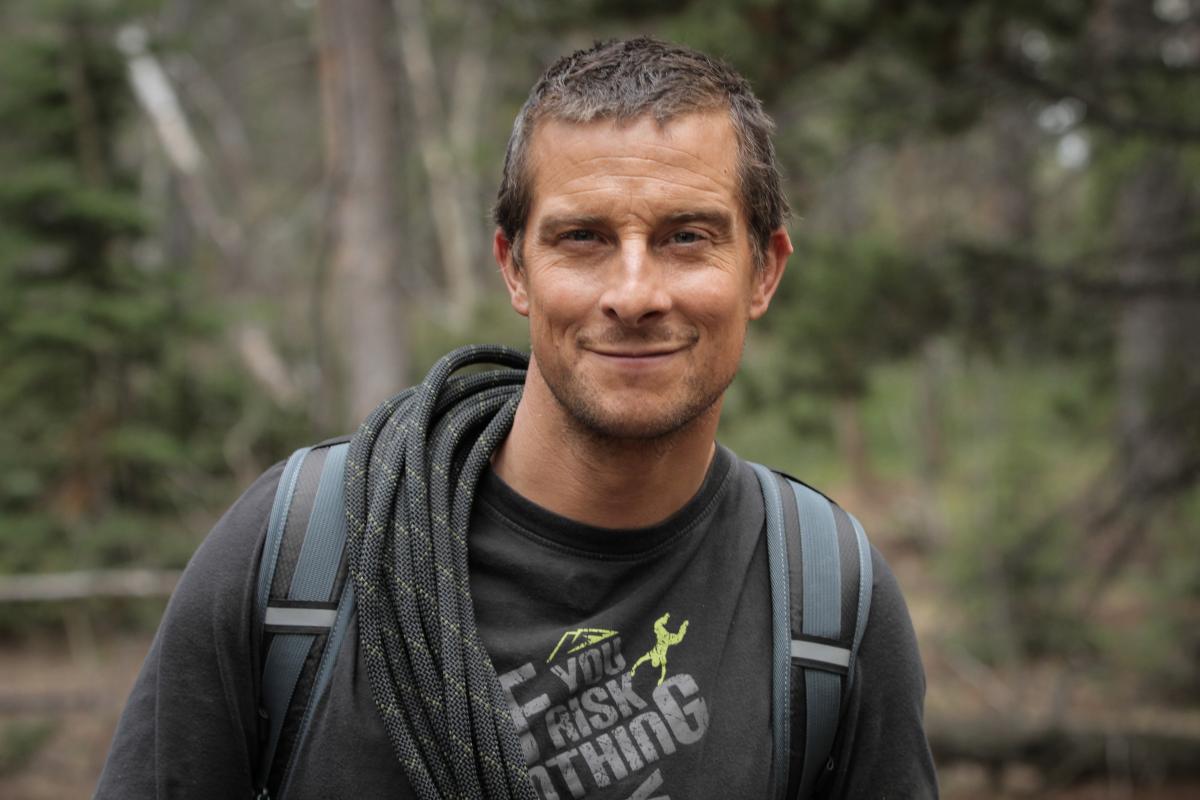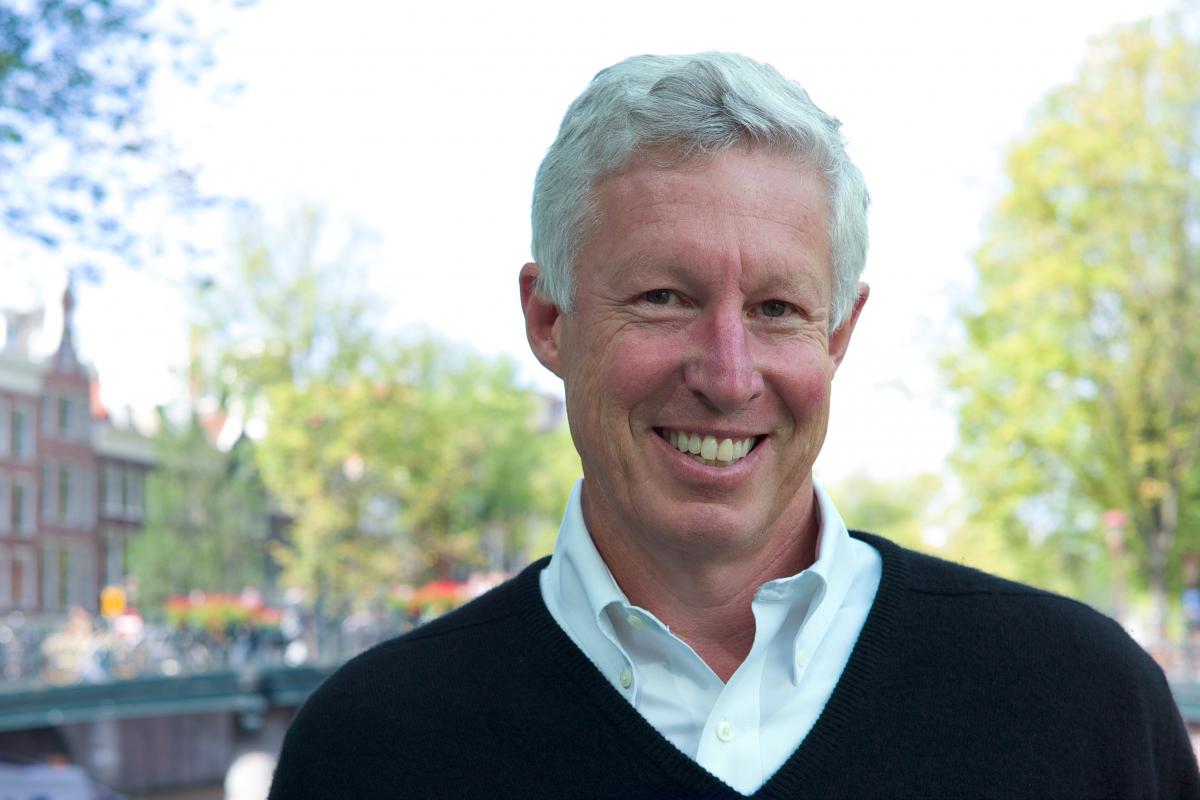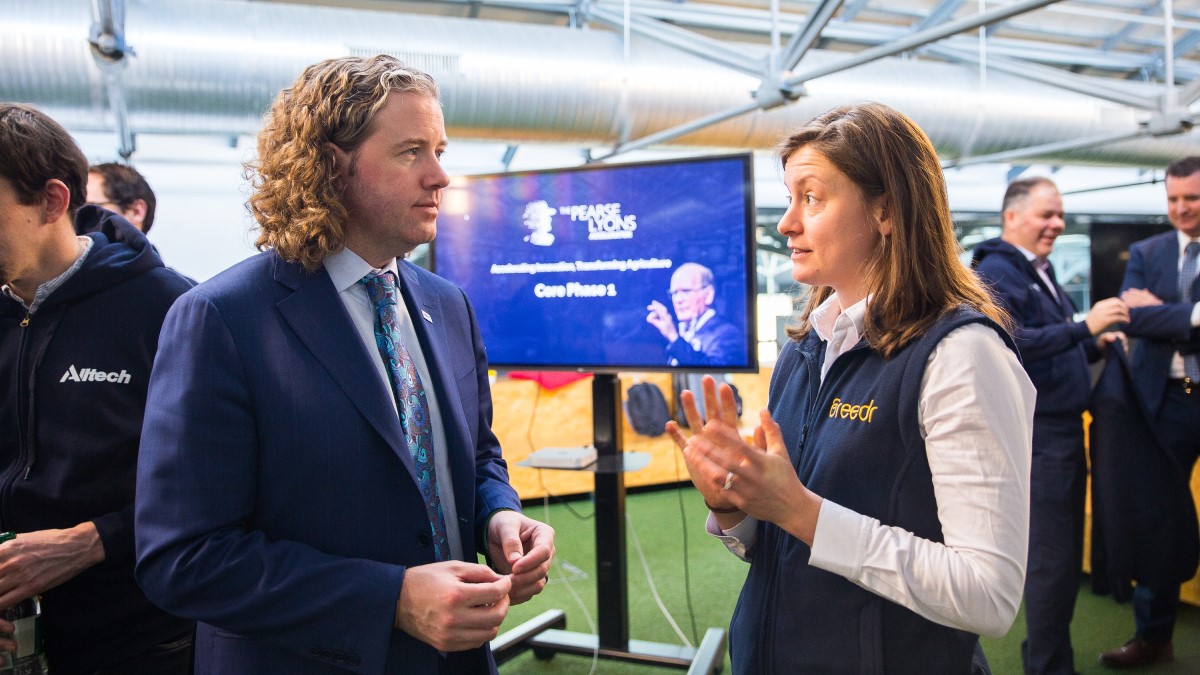ประเด็นร้อน : การจัดการความเครียดจากความร้อนในโคนม
บทสัมคุณภาษณ์ทอม ลอเรนซา ผู้เชี่ยวชาญด้านการจัดการฟาร์มโคนมของออลเทค
ทอม: ความร้อนและความชื้นในช่วงฤดูร้อนก่อให้เกิดผลเสียต่อสุขภาพและผลผลิตของฝูงสัตว์ได้ เป็นที่เข้าใจได้ว่าความร้อนจากความเครียดนี้เป็นสิ่งที่ทางผู้ผลิตเองไม่สามารถควบคุมได้ทั้งในเรื่องอุณหภูมิและความขื้นในอากาศ ตอนนี้เราอยู่กับคุณทอม ลอเรนเซน ผู้เชี่ยวชาญเฉพาะทางโคนมของออลเทค ผู้ตรวจสอบและเป็นวิทยากรโรงเรียนสอนเทคนิคการรีดนมรวมทั้งนำเสนอผลงานเรื่องคุณภาพน้ำนม เพื่อพูดคุยกันในเรื่องการเข้าถึงโภชนาการอาหารเพื่อป้องกันการเกิดความเครียดจากความร้อนในช่วงฤดูร้อนนี้ ขอบคุณมากครับคุณทอมที่มาร่วมพูดคุยกับเรา
ทอม แอล: ขอบคุณครับ
ทอม: ก่อนอื่น คุณช่วยอธิบายถึงลักษณะคลื่นความร้อนให้เราฟังหน่อยได้ไหมครับ?
ทอม แอล: นั่นเป็นคำถามที่ดีเลยครับ ผู้คนในวิสคอนซินเผชิญกับหิมะหนาที่ 20 – 30 นิ้วเมื่อสัปดาห์ที่ผ่านมา ดังนั้นเรื่องคลื่นความร้อนอาจไม่ใช่ประเด็นที่พวกเขาจะพูดถึง แต่เรากำลังจะคุยกันในเรื่องของความเครียดจากความร้อนในโคนม หรือเป็นช่วงที่สภาพแวดล้อมนั้นไม่อยู่ในช่วงระดับที่เหมาะสมสำหรับวัวหรือที่ประมาณ -4 ถึง 20 องศาเซลเซียส
ทอม : แล้วอะไรที่จะเป็นปัจจัยบ่งชี้ขั้นรุนแรงได้บ้างครับ? คุณรู้ได้อย่างไรว่าเมื่อไรถึงจุดที่เลวร้ายจริงๆ?
ทอม แอล: อุณหภูมิอากาศ, ความชื้นสัมพัทธ์และการเคลื่อนที่ของอากาศ, รังสีจากดวงอาทิตย์ ทั้งหมดนี้ล้วนแล้วแต่มีผลกับความเครียดจากความร้อน เมื่อวัวเกิดความเครียดจากความร้อนเราจะเห็นได้ว่าวัวจะเริ่มหายใจเร็วขึ้น และเมื่ออุณหภูมิเพิ่มสูงขึ้นหรือเมื่อเกิดความเครียดมากขึ้น เราจะเห็นอัตราการหายใจถี่ขึ้นด้วย ผมมักพูดเสมอว่าให้หยุด สังเกตและฟังวัวของท่าน เมื่อผมเห็นว่าวัวอ้าปากกว้างและหายใจหอบแรงเร็ว คุณสามารถแน่ใจได้ว่ามันเกิดความเครียดจากความร้อน ทั้งนี้วัวสามารถลดความเครียดจากความร้อนได้เล็กน้อยโดยธรรมชาติจากการขับเหงื่อ แต่วัวขับเหงื่อเพียงแค่ 1% เท่านั้นเมื่อเทียบกับคน
ทอม : แล้วเกิดผลกระทบอย่างไรต่อวัวบ้างเมื่อเกิดความเครียดจากความร้อน?
ทอม แอล: เราจะเห็นได้ว่าวัวจะหายใจหอบและน้ำลายไหลมากขึ้น เป็นผลให้ปริมาณน้ำลายเข้าสู่กระเพาะอาหารส่วนรูเมนลดลง ซึ่งเป็นผลเสียต่อภาวะสมดุลในกระเพาะรูเมนทำให้เกิดภาวะความเป็นกรดนั่นเอง เราจะสังเกตได้ว่าวัวจะกินอาหารน้อยและมีการเคี้ยวเอื้องน้อยลง ทำให้ผลผลิตน้ำนมลดลง
ทอม : จะเกิดอะไรขึ้นต่อปริมาณการผลิตน้ำนมเมื่อต้องเผชิญกับสภาวะนี้ โดยเฉพาะในช่วงที่ความเครียดจากความร้อนนานขึ้น?
ทอม แอล: เมื่อวัวประสบกับปัญหาความเครียดจากความร้อน สิ่งแรกที่เราเห็นได้เลยคือ การกินอาหารลดลง เมื่อสิ่งเหล่านี้เกิดขึ้น เราจะเห็นได้ว่าผลผลิตน้ำนมลดถึง 4 ลิตรต่อวัน
ทอม : แล้วอย่างนี้มีผลกระทบต่อระบบสืบพันธุ์ด้วยหรือไม่ครับ?
ทอม แอล: แน่นอนครับ มันมีผลกระทบต่อความสมบูรณ์พันธุ์ ส่งผลให้ช่วงระยะเวลาการให้นมและวันท้องว่างนานขึ้น เราจะเห็นได้ว่าเกิดผลกระทบมากมายจากความเครียดจากความร้อน
ทอม : มีเครื่องมือที่สามารถช่วยลดความเครียดจากความร้อนนี้ได้บ้าง เช่น พัดลม, เครื่องฉีดน้ำ แล้วในส่วนของกลยุทธ์ด้านการจัดการโภชนาการล่ะครับ?
ทอม แอล: เรื่องแรกที่ผมอยากกล่าวถึงคือเรื่องของน้ำ น้ำเป็นสิ่งที่สำคัญมากเนื่องจากเป็นส่วนประกอบของน้ำนมถึง 85% ดังนั้นเมื่ออุณหภูมิเพิ่มสูงขึ้น วัวจึงต้องการน้ำเพิ่มขึ้นนั่นเอง วัวสามารถดื่มน้ำได้เพิ่มขึ้นกว่า 50% เมื่ออุณหภูมิและค่าความชื้นสูงขึ้น โดยที่สามารถดื่มน้ำได้ถึง 20 – 32 แกลลอนต่อวันเมื่ออุณหภูมิเพิ่มสูงเกิน 30 องศาเซลเซียส
ทอม : ปัจจัยอื่นที่ในด้านโภชนาการน่าจะเป็นเรื่องของพลังงาน ทำไมการเพิ่มค่าพลังงานในอาหารจึงเป็นสิ่งจำเป็นระหว่างช่วงเกิดคลื่นความร้อน?
ทอม แอล: เมื่ออุณหภูมิเพิ่มสูงขึ้น วัวจะกินอาหารน้อยลง ซึ่งเป็นผลให้เกิดการดูดซึมสารอาหารน้อยลงด้วย ดังนั้นการเพิ่มพลังงานในอาหาร โดยการใช้ไขมันไหลผ่าน สามารถช่วยรักษาค่าพลังงานในอาหารให้เพียงพอต่อความต้องการได้
ทอม : ต่อกันที่เรื่องของโปรตีน ความเครียดจากความร้อนมีอิทธิพลอย่างไรต่อการกินโปรตีนบ้างครับ?
ทอม แอล: ก็เหมือนทั่วๆไป แหละครับ เมื่อค่าความเครียดจากความร้อนเพิ่ม เราจะเห็นว่าเกิดการกินได้ของวัตถุแห้งน้อยลง และทำให้ระดับโปรตีนลดน้อยลงในช่วงนี้ เกิดผลเสียต่อสมดุลไนโตรเจน ส่งผลให้ผลผลิตน้ำนมลดลง, ภูมิต้านทานโรคและระบบสืบพันธุ์ ทางหนึ่งที่จะช่วยบรรเทาคือการเพิ่มค่าความเข้มข้นของโปรตีนในสัดส่วนอาหารพร้อมๆ กับต้องมั่นใจได้ว่ามาจากแหล่งโปรตีนที่วัวสามารถย่อยได้ด้วย
ทอม : ผมเข้าใจว่าระหว่างช่วงที่ความร้อนสูงขึ้นนั้น เป็นสิ่งสำคัญมากที่ต้องรักษาระดับเยื่อใยในอาหาร แต่การย่อยเยื่อใยในอาหารนี้กลับทำให้ความร้อนเพิ่มสูงขึ้นด้วย เราจะแก้ปัญหานี้ได้อย่างไรครับ?
ทอม แอล: ในช่วงระหว่างการเกิดความเครียดจากความร้อนนี้จะมีช่วงที่เกิดความเสี่ยงสูงของการเกิดภาวะกรดในกระเพาะรูเมนเนื่องจากกินอาหารน้อยลง เพื่อลดความเสี่ยงในเรื่องนี้ การรักษาระดับใยอาหารจึงเป็นสิ่งสำคัญ อย่างไรก็ตามอาหารสัตว์ส่งผลให้ค่าความร้อนสูงขึ้นได้ ดังนั้นเราควรมีการติดตามคุณภาพและการย่อยอาหาร อาหารสัตว์ที่มีคุณภาพดีนั้นทำให้เกิดการย่อยได้เร็วในกระเพาะรูเมนส่งผลให้กระเพาะรูเมนมีสุขภาพดีและช่วยให้เกิดผลกระทบน้อยที่สุดจากการเพิ่มอาหารที่มีค่าพลังงานในช่วงการผลิตน้ำนม
ทอม : ประเด็นสุดท้ายครับ ในแง่ของแร่ธาตุนั้น อะไรเป็นหน้าที่ของแร่ธาตุคือช่วยวัวในแง่ของการต่อสู้กับความร้อนครับ?
ทอม แอล: อย่างที่ผมได้กล่าวไปแล้ว ความเครียดจากความร้อนทำให้เกิดภาวะการหลั่งน้ำลายที่มากขึ้น ซึ่งน้ำลายเป็นตัวปรับสมดุลที่สำคัญในระบบของวัว ตัวปรับสมดุลอื่นๆ เรามองไปที่การเพิ่มแร่ธาตุพวกโซเดียม, โพแทสเซียมและแมกนีเซียมเพื่อลดความเครียดในช่วงนี้ได้ครับ
ทอม : คุณมีเคล็ดลับสำหรับผู้ผลิตทั้งหลายในการจัดการอย่างไร เพื่อเตรียมพร้อมสำหรับช่วงหน้าร้อนนี้บ้างไหมครับ?
ทอม แอล: เราจำเป็นต้องเตรียมน้ำสะอาดให้มากพอ อีกส่วนที่สำคัญคือจัดหาพัดลมหรือเครื่องฉีดน้ำเพื่อให้วัวเย็นขึ้นพร้อมๆ กับจัดหาแหล่งพักที่เป็นร่มเงาให้แก่วัวด้วย ความท้าทายอย่างหนึ่งที่สำคัญคือความแออัดของฝูงวัว หากวัวอยู่แออัดเกินไป มันจะไม่ไปที่ห้องพักเพื่อกินหรือนอนพัก ยังมีสิ่งสำคัญอื่นๆ อีกมากมายหลายอย่าง สุดท้ายและนับเป็นสิ่งที่สำคัญมากคือ เราต้องตรวจสอบสิ่งต่างๆ จากสัปดาห์ก่อนหน้านี้เสมอ เช่น ตรวจสอบการตั้งครรภ์ หรือหากมีการเคลื่อนย้ายวัวหรือการผสมวัว เราอาจต้องทำในช่วงเช้าตรู่เพื่อลดความเครียดของวัวเป็นต้น
ทอม : ขอบคุณมากครับทอมที่สละเวลามาอยู่กับเรา
ทอม แอล: ขอให้มีวันที่ดีนะครับ
ทอม : และนี่คือคุณทอม ลอเรนเซน ผู้เชี่ยวชาญด้านวัวนมจากออลเทคครับ














.png)
.png)








